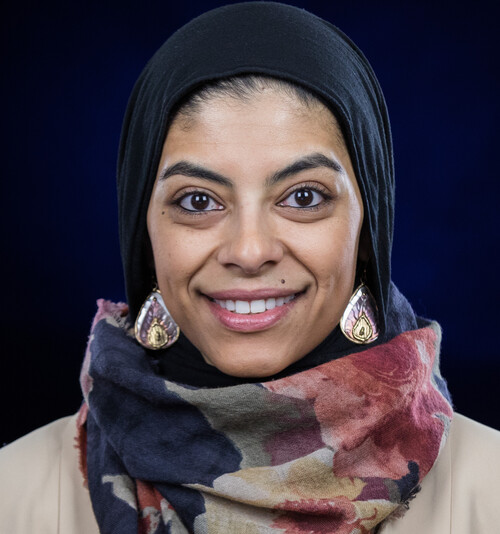Nancy Khalil

In 2014, the Islamic Society of Boston Cultural Center in Roxbury, which serves a large immigrant community, began its search for a new imam, the spiritual guide of Muslim communities. Their search would take almost a full year and is a great illustration of the differences that exist between finding a new imam in America versus in a Muslim-majority country.
“In America, Sunni immigrant Islam is a very decentralized, horizontal faith, explains Nancy Khalil, a PhD candidate in anthropology. “This means that there is no central authority that you would approach when you are recruiting a new imam.” Furthermore, in most Muslim-majority societies, the state also intercedes to create a regulatory processes for the training and education of imams. The same does not occur in the US, where religious freedom prevents the state from stepping in.
“The lack of a central authority within the religious community creates a regulatory vacuum in the US,” argues Khalil, who is particularly interested in how Muslim communities across America have filled this space. “Seminaries dedicated to educating people about Islam have been emerging rapidly over the past 10 years, and I argue that these seminaries are an attempt by Muslim communities to address this vacuum.”
But what makes the seminaries bona fide is just as opaque as what makes an imam bona fide. Very few of the seminaries in the US are fully accredited and the path to accreditation is long, costly, and can take different routes. Despite this arduous process, official recognition is important for these young seminaries. According to Khalil, it is a vital step that allows them to attract students and faculty and be perceived as a peer institution by seminaries of other faiths.
Khalil outlines three major paths for becoming an imam in America: you can come from abroad; you can study abroad or you can attend one of the nascent seminaries. “The pedagogy is so different abroad, that when you arrive in America and try to meet the learning style and pastoral needs of the community, it feels like trying to take a square peg and fit it into a circle,” Khalil says. She argues that the seminaries are particularly important because they are doing the pioneering work of creating a curriculum that attends to the Sunni immigrant experience in America. “The effects of accreditation will not be limited to legitimizing these seminaries in the eyes of the Muslim community,” she shares. “The role these state bureaucratic processes will play is not insignificant in informing and influencing how the religion takes shape.”

